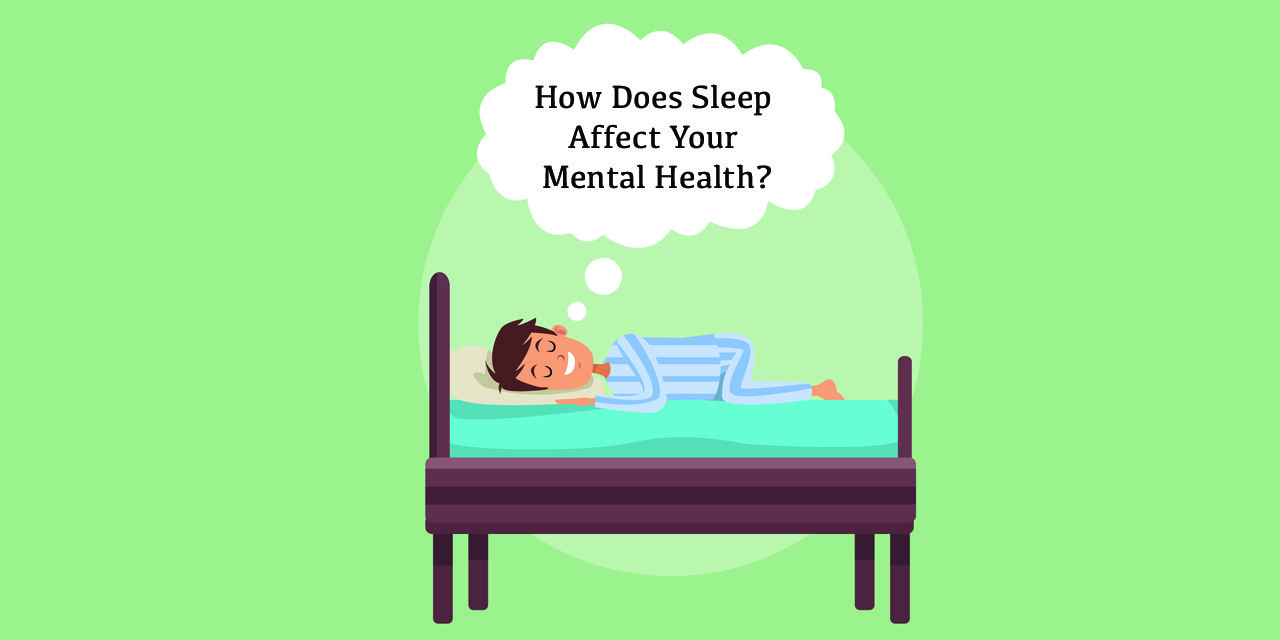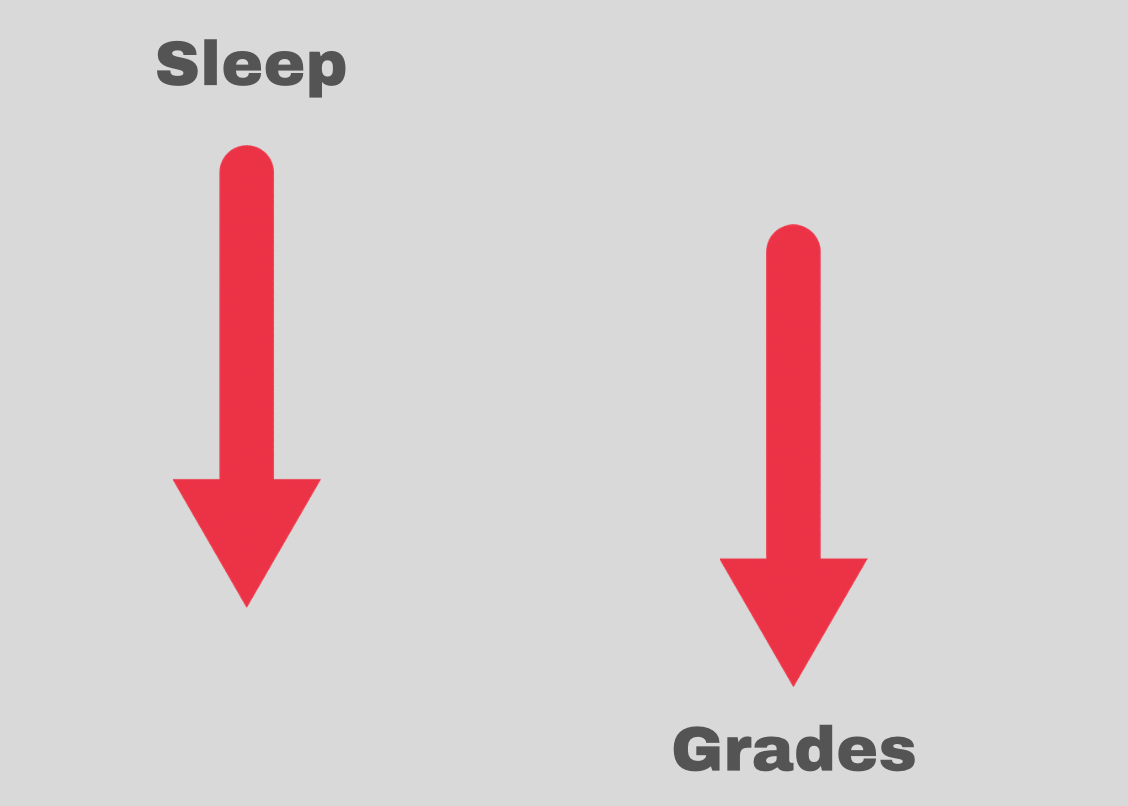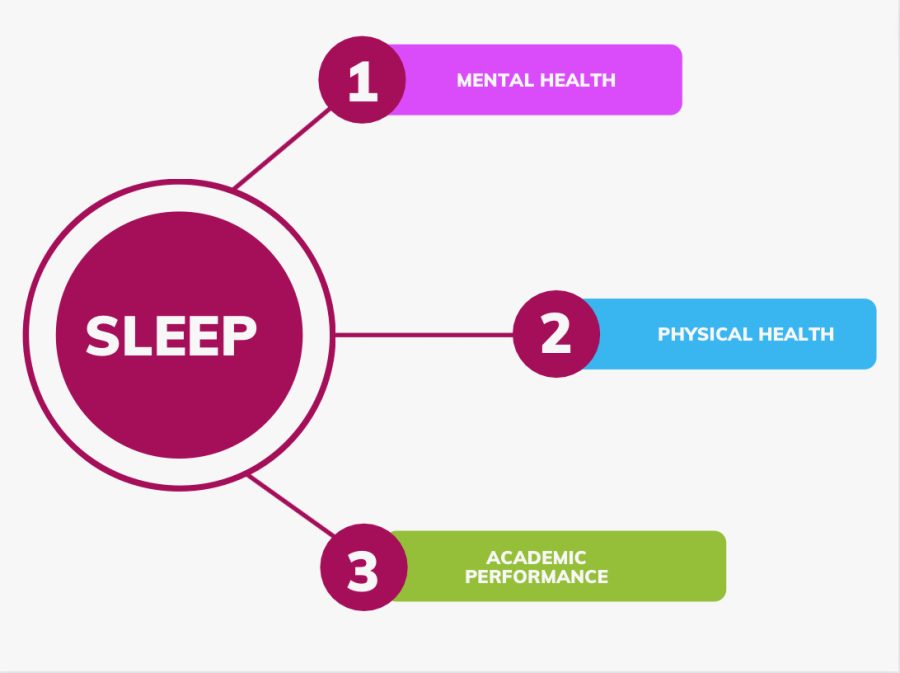Sleep correlates to three main categories for students: mental health, physical health, and academic performance.
Lack of Sleep in the Jesuit Community
February 28, 2022
For 14-18 year olds, the age of high school students, doctors recommend getting between 8 and 10 hours of sleep per night. However, in a 2018 survey of Jesuit students, the majority of students reported getting between 6 and 7 hours per night.
This lack of sleep led students to report feeling “tired” and “burnt out” by the afternoon.
But why are students not meeting the required 8-10 hours?
Multiple factors contribute to lack of sleep in students, two primary reasons being start times and work load. With the ring of the first bell at 8 A.M., Jesuit’s start time may be compromising student’s health.
“Generally, the more homework I have, the less sleep I get because I stay up to complete my assignments, rather than getting sufficient sleep,” senior Grace Denny said.
Consistently failing to meet sleep requirements can lead to detrimental repercussions in mental and physical health, as well as impact academic performance.

Adverse mental health affects result from lack of sleep.
Lack of Sleep’s Effect on Mental Health
One of the main consequences of lack of proper sleep is poor mental health. Proper sleep includes not only time, but also quality. When students are overly stressed, their quality of sleep goes down.
“When I have a lot of homework, I usually can’t go to sleep without finishing it, which decreases my amount of sleep,” senior Nysa Gohil said. “However, sometimes I choose sleep over homework, but then that leaves me feeling more stressed about going to school the next day. Either way, I feel like the homework load is impacting my sleep negatively.”
Many Jesuit students align with Gohil in the 2018 survey, with 57.3% of students claiming that they force themselves to stay awake when they feel tired while doing homework.
The 2018 survey found that Jesuit students are consistently under-rested, attaining only 6 or 7 hours per night. Over time, lack of sleep or poor sleep can affect mental health.
A professional at the Institute of Mental Health in Singapore, Lee Seng Esmond Seow examined sleep duration and quality in association with mental and physical disorders. People getting 6 hours of sleep or less per night were twice as likely to develop a mental disorder in their lifetime and 2.8 times more likely to develop a mental disorder in a 12 month time frame.
In the section of the study focusing on the lifetime impact of lack of sleep, they compared the likeliness of specific mental disorders in those consistently getting 6 hours or less of sleep per night versus those getting over 9 hours per night. Of these mental disorders, participants were 3 times more likely to develop Bipolar Disorder, and 4 times more likely to develop OCD.
The study also focused on the short-term impact of insufficient sleep, comparing those getting 6 hours or less of sleep per night with those getting over 9 hours per night and the correlation to mental disorder development in a 12 month period. Participants were drastically 70 times more likely to develop Bipolar Disorder, and 3.6 times more likely to develop OCD.
With the high pressure of a competitive school environment accompanied by hefty workloads and early start times, students are at risk for mental health disorders.

Along with physical health complications from lack of sleep, caffeine intake can contribute to health problems.
How Lack of Sleep Impacts Physical Health
In addition to negative mental health consequences, consistent lack of sleep can decrease one’s physical health.
Seow’s study also examined this impact, finding that people getting less than or equal to 6 hours of sleep per night were 1.64 times more likely to develop a physical disorder. Among these numbers, Seow found that lack of sleep led to participants being twice as likely to develop chronic pain as well as a cardiovascular disorder.
When students consistently miss the benchmark for sleep, they become at risk for severe health complications. In efforts to combat their lack of sleep, many students look for ways to ease their tiredness.
“Every morning I wake up feeling tired and not energetic, so I turn to caffeine to help wake me up,” Gohil said. “It’s almost automatic to use caffeine to make up for my lack of sleep.”
Although caffeine offers temporary relief of consistent tiredness, it does not make up for insufficient sleep. Instead, caffeine offers its own complications to physical health.
Alan J. Budney, a professor at the Geisel School of Medicine at Dartmouth University, explored caffeine’s impact on adolescents with a few main concerns.
The first concern of consistent caffeine intake in adolescents was “dependence,” or when users become dependent on caffeine to function in their daily life. Dependence can lead to withdrawal symptoms of headaches, fatigue, or drowsiness, ironically many of the symptoms teens use caffeine to combat.
Another main concern in teens who intake between 100-400 mg of caffeine per day (a moderate amount for an adult) is the more severe impact caffeine takes on adolescents. Caffeine in adolescentes can lead to anxiety, disrupted sleep, and can impact learning, as well as development.
So while lack of sleep can have detrimental effects on physical health, efforts to combat sleepiness, such as caffeine consumption, further adversely affect teens.

As the hours of sleep decrease for students, so do their grades.
Academic Performance and Correlation to Sleep
While mental and physical health remain a priority in analyzing the impact of sleep on students, academic performance is also negatively affected by lack of sleep.
In the 2018 survey, 58% of students reported that they felt they have received lower grades due to lack of sleep. Denny echoes this sentiment presenting the dilemma she faces.
“Certain nights this year, I have prioritized my sleep over studying for a test the next day or completing an assignment,” Denny said. “This seems to negatively impact my grades which leaves me with a difficult choice of getting a good grade or giving myself the sleep my body and brain need.”
In Lin et. al’s study analyzing sleep duration’s association with academic achievement, particularly in mathematics, they found that students who got less than the recommended 8-10 hours of sleep per night got lower grades than those who got the recommended amount.

Knowing the negative impacts lack of sleep can have on students, what should we do next?
Conclusion: Student’s Thoughts on Lack of Sleep
With the clear adverse impact that lack of sleep can have on students, it begs the question of what should be changed.
In a Seattle School District study comparing the year before and after the start time was delayed by 55 minutes, they found that this delay led to over 30 minutes more sleep per night in students. The study also found that delaying the start time did not cause students to go to bed any later.
“I feel I don’t get that much sleep because of the amount of homework I have,” freshman Akhil Kaushik said. “It is tiring. I feel the homework loads should decrease and the amount of the work done in class should increase.”
Senior Sarah D’Souza, however, is open to change in the school’s start time.
“I like our start time for the most part; however, if we started later, I could probably get some work done in the morning and wouldn’t have to stay up as late as I do now,” D’Souza said.
Senior Shreya Kaushik also has hopes for more hours of sleep, but admits the start time does offer some advantages.
“Although we start early, I do like getting out of school at the time we do,” Kaushik said. “It’s nice to be able to do activities in the afternoon.”

